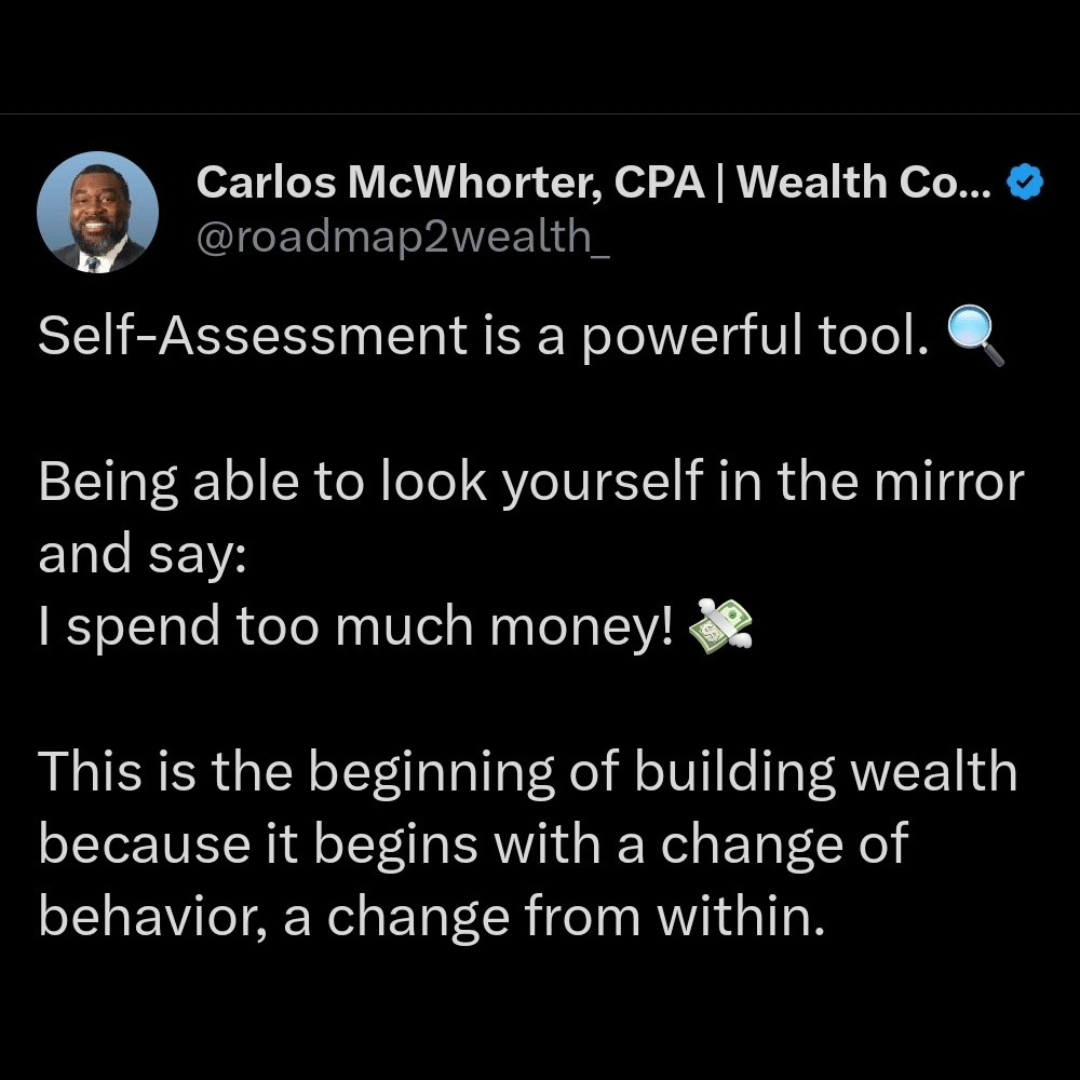There are 5 particular differences between the wealthy and the poor.
It’s important to understand these differences to identify things in our lives that block our progress. Knowing the small changes we need to make will pay off greatly in the future as we benefit from them over and over gain.
Now, let's dive in.
#1: Plan
A documented financial plan increases your likelihood of reaching your financial goals by 200%.
A financial plan is a clear picture of where you are, where you’re going, and how you’ll get there. The process makes you think about what you want for your life, how you want to live, what your travel experiences will look like, how much you support your children with their education, how many properties you’d like to own, and the list goes on…..
Without thinking through all you want in life, you’ll never know how much you need to save and invest to accomplish these things or how much insurance you’ll need to cover your family in case of loss.
Many people participate in saving and investing without knowing exactly why. The wealthy lay their plans out, share them with family, and execute their plan!
#2: Buy Time and Experiences, Not Stuff
Being wealthy is more important than looking wealthy.
Wealthy people understand buying time and experiences are two ways we can actually buy happiness. Just like a business owner leveraging the time of employees to build wealth, leverage the time of others to enhance your life.
We become happier the more positive experiences we have. All stuff fades but memories last forever and ACTUALLY bring joy to us. They joy of acquiring stuff fades as the newness wares off and newer thing is produced and marketed. Avoid the cycle of buying stuff to be happy.
The great thing is you don’t need to be wealthy to start doing this. Start by paying for lawncare, laundry, or house cleaning, or any tasks we do out of pure obligation. Fill this time with working out, time with family, working on your side business, or any activity that brings you joy: Wouldn’t life be better?
#3: Spend with Purpose
Aimless spending is killing your wealth.
Forget the illusion that rich people don’t spend money. Of course they spend, but with purpose. From the neighborhood they live in, who they network with, the experiences they buy, the education and mentorship they acquire, it is for particular purposes.
These purposes are in line with their financial and personal plans (note the importance of point #1). Aimless spending is what keeps us in a cycle of being poor and underprepared for life’s financial demands, wondering why you keep finding yourself in the same position, over and over again.
#4: No Emotional Attachment to Money
Emotional decision making keeps you poor.
I’m sure you have a hammer in your house. It is very rare that you’d have an emotional attachment to that hammer. It’s a useful tool used to hang a picture or connect pieces of wood together.
Wealthy people see money just like you see a hammer: A tool used to build the life you want.
It is difficult to follow a financial plan when there is an unhealthy, emotional attachment to money. Many think money’s job is to make us fell a certain way. We obsess over what money can buy for us. Instead, focus on what money can do for you.
A healthy view of money is focusing on the lifestyle, experiences, and peace money can help you attain. Have an emotional attachment to those things instead of the money itself. This will help you plan and stick with your plan as your goal is to live a particular way and not have particular things. Having a better “why” is important.
#5: Delayed Gratification?
We fulfill what we desire.
Saving and investing produce negative feelings for many. They believe saving/investing is a sacrifice, as if the money no longer belongs to them once its put away.
There are two takeaways here:
Financially secure people understand the money saved and invested is not money that is gone. That money is securing their future safety and lifestyle.
Gratification is a satisfaction of a desire. What if I told you wealthy people don’t practice delayed gratification when they save/invest? They have a stronger desire for financial security than they do material things. The security is what gratifies them.
My hope for you is that you focus on your future and begin to put more desire and affection on becoming financially free.
It all begins with putting a financial plan in place for your life. Let’s begin and/or continue our journey of wealth with renewed energy and focus.
Tweet of the Week

Podcast: The Allure of Buying Stuff!
